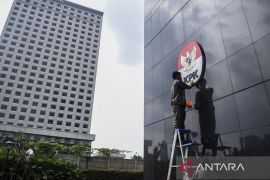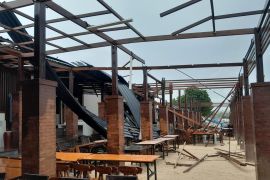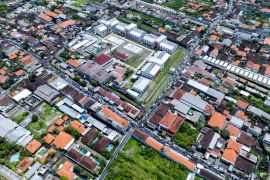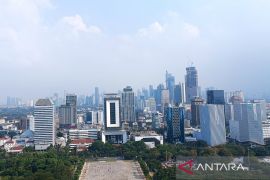Jakarta (Antara Bali) - The Minister of Communication and Informatics, Rudiantara, has affirmed that broadband infrastructure, internet driven businesses and broadcast services will be expanded during his time in the office until 2019.
"In 2015, I was asked what I wanted to focus on, and I have always held that broadband, internet and broadcast (BIP) (would remain my priority). I am consistent about that," Rudiantara stressed during a discussion on "Energizing Digital Economy" in Jakarta, on Thursday.
During the discussion, organized to commemorate Indotelko.coms 5th birthday, the minister said Indonesias infrastructure and connectivity facilities need to reach all the regions in the country so that the country can catch up and enhance its position in the Technology, Information and Communication (TIK) sector in the ASEAN region.
The government, alongside various industry players and stakeholders, have a vision to ensure that Indonesia rises to the second place by 2019, from the fourth place that it now occupies.
Rudiantara further stated that 114 capital cities were yet to be connected to broadband, a situation that prompted the government to set in motion a public-private partnership (PPP) policy which will include broadband operators.
However, infrastructure development in these cities is not being fully left to telecommunication operators.
For areas deemed unfit for business operations, operators will contribute to the development through Universal Service Operation funds, under which the government will build the infrastructure in those areas, including through the Palapa Ring project.
"Operator have made a commitment to the government to develop 57 regions that have yet to be connected to the broadband by the end of 2018, while the other 57 will be built by the government," he revealed.
As for internet driven businesses, the government will focus on e-commerce, cyber security and government.
The governments seriousness in developing e-commerce is reflected in the formulation of a road map designed to shape the e-commerce ecosystem and structure in Indonesia that is growing rapidly. A specific guideline is required to ensure its optimal growth.
With regard to the broadcasting sector, the minister said things will migrate towards digitization in the near future.
"Migration to a digital community is inevitable in the broadcasting sector and I think there could be a sort of Universal Service Obligation in the broadcasting sector so that it can contribute more to the Non-Tax National Income (PNBP)," he reiterated.
Of the approximately 11 trillion rupiah worth of PNBP from the telecommunication sector, broadcasting field only contributed around 100 billion rupiahs, a relatively small sum, he concluded.(WDY)









